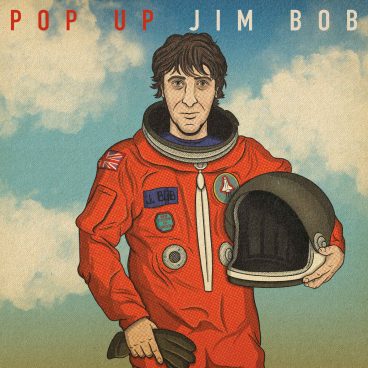Grace Petrie’s bitter-sweet song of solidarity, Pride, movingly articulates the conflicting emotions of life as a gay person in the 21st Century – on the one hand the legacy of dignity earned by 50 years of liberal activism and on the other the rancour at a lifetime of being discriminated against simply for being who you are.
“Yeah sometimes it’s like an uphill climb,” sings Petrie on this heart-felt track from her 2018 album, Queer As Folk, which mingles charming love songs with hot-blooded politics. “But I’m right by your side, and that’s what we call pride”.
Now in her early 30s, Petrie says she is “very optimistic” about attitudes to homosexuality compared to when she was a teenager in an environment where she felt unable to come out of the closet. “It’s incredible how far we have come”, she says, but warns that the fight for LGBT rights may never be won.
“We can never get complacent,” she told Sarah Corbett-Batson in Trebuchet Magazine last year. “We can never lay down arms… Right now we have an unimaginably hard right government in charge of the USA and essentially in charge of the world. Donald Trump is the most powerful person in the world right now. He has shown himself already to be politically transphobic and I think that politically he’s done very homophobic things as well. I definitely think that his support base is tremendously homophobic and we certainly have a very, very long way to go before we’ll achieve anything close to equality.”
In the USA, laws criminalising sexual relationships between consenting adults of the same sex were gradually repealed state by state, starting in the 1960s, although such relationships were not made legal nationwide until 2003. And whilst it is now legal for same-sex couples to marry in all 50 states, it is still legal in 31 or them to fire someone, evict them or turn them away from your place of business on the grounds of their sexual orientation.
Until 1967, when homosexuality was decriminalised in the United Kingdom, men could be arrested and imprisoned for having a sexual relationship. Five years later, Britain’s first Pride march took place in London, with around 2,000 gay people taking part. It was a show of solidarity for the gay liberation activists who took part in the Stonewall rebellion in New York in 1969.
The law at that time segregated the gay community into a shameful and secretive subculture where being openly gay was only possible in a handful of bars. On 28th June that year, police raided the Mafia-owned Stonewall Inn in Greenwich Village where they arrested 13 people on various charges, including cross-dressing, which was outlawed in New York at that time.
The heavy-handedness of the police led to bystanders taking action, throwing missiles at police officers, slashing the tyres of one of their vehicles and attempting to overturn another. Within minutes, hundreds of people were involved and over the next few days thousands more took to the streets to protest. The Stonewall Inn has since been designated a national monument in recognition of its contribution to gay and human rights.
Though Petrie has supported the likes of Billy Bragg, Emmy the Great and, most recently Frank Turner, it wasn’t easy for her to find an audience for her music at first. Unusually, it was her satirical sense of humour that propelled her into the public eye when she got to know stand-up comedian Robin Ince and he invited her to be his opening act.
“That whole thing about politics in mainstream music, for whatever reason it’s not massively welcomed by the mainstream industry,” she said in an interview with Demon TV at the Handmade festival in 2015. “Whereas in comedy, political satire is much more expected. So I met Robin and I met Josie Long and a few other comics and they just kind of put me on as their support act. It was quite weird at first because I’d go out there and say ‘I’m not funny’ and everyone would laugh and I’d go ‘No, seriously I’m not funny. You’re not going to enjoy this. It’s not going to be funny. I’m just going to be angry and shout at you for a while’.”
Grace Petrie’s song God Save the Hungry appeared on the playlist back in June 2017. Read about it here.






